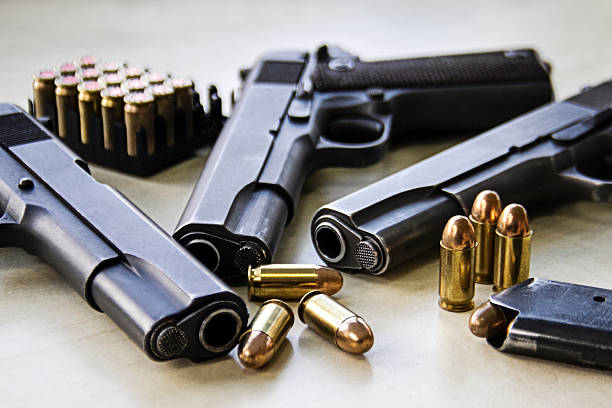When it comes to the aftermath of a gunshot, it is important to understand the complex dynamics of the human body's response. It is not simply a matter of pain or gunpowder poisoning, but a combination of factors that determine the outcome.

Initial effects: shock and pain
Instant shock
A gunshot wound causes a deep initial shock to the body. The force of the bullet entering the body can cause immediate shock, leading to loss of consciousness or disorientation.
Nervous system response
The nervous system plays an important role in how the body senses pain. Gunshot wounds can cause excruciating pain due to the rapid transmission of signals from the injury site to the brain.
Role of adrenaline
In response to extreme stress and trauma, the body releases adrenaline. This surge of adrenaline can temporarily mask pain, allowing the individual to remain conscious and alert despite their injuries.
Long Term Effects: Gunpowder Toxicity
Gunpowder and its components
Gunpowder contains various chemicals including sulfur, charcoal, and potassium nitrate. When a firearm is fired, these components ignite and produce poisonous gases.
Inhaling toxic fumes
In close-range shooting, individuals can inhale these toxic fumes. While gunpowder poisoning is a real concern, it is not the primary cause of death in most gunshot cases.
The real culprit: physical harm
Tissue and organ damage
The most lethal aspect of a gunshot wound is the physical damage it causes to the body. The bullets can tear vital organs, blood vessels and tissues, causing severe internal bleeding and irreversible damage.
Hemorrhage and shock
Excessive bleeding, known as hemorrhage, can cause hypovolemic shock, a condition where the body cannot maintain adequate blood pressure. It is a major contributor to gunshot deaths.
Role of medical intervention
Urgent medical care
Survival rates largely depend on the promptness of medical care. Quick intervention can help control bleeding, manage pain, and increase chances of survival.
Surgical procedures
In many cases, surgery is required to repair the damage caused by a gunshot wound. Surgeons work to stop bleeding, remove bullets, and repair injured organs.
A complex interaction
In short, gunshot deaths are not primarily caused by pain or gunpowder toxicity. Instead, it is the physical damage inflicted on vital organs and tissues, as well as the rapid loss of blood and the body's response to trauma, that causes death. Understanding the complexities of gunshot wounds can shed light on the complex nature of such injuries.










